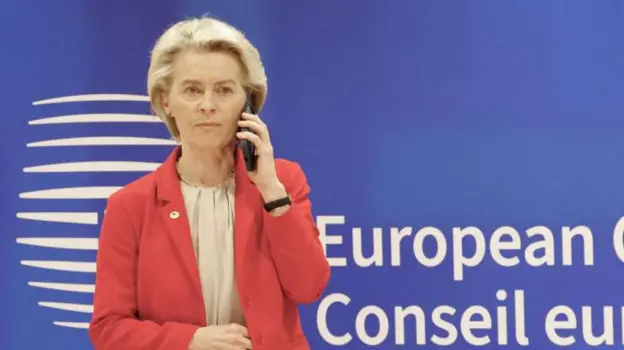14 May 2025 – The General Court of the European Union has annulled the European Commission decision to refuse access to text messages relating to COVID-19 vaccine negotiations, stating that doing so violated EU access to documents law and breached the principle of good administration.
In early 2021, it was revealed that President von der Leyen had exchanged text messages with Pfizer CEO during negotiations for COVID-19 vaccine procurement. Following this, a journalist from The New York Times submitted a request for access to these messages under the EU’s access to documents law (Regulation 1049/2001).
According to the Commission’s internal rules, only documents containing “important information which is not short-lived” must be registered. Since the text messages were not registered, the Commission refused the request claiming it was not in possession of the texts and therefore they did not exist for the purposes of Regulation 1049/2001.
The General Court has now decisively rejected that argument and annulled the Commission’s decision, stating that it violated its legal duties under Regulation 1049/2001 and the Charter of Fundamental Rights of the European Union by failing to conduct an adequate search and provide a reasoned response.
Court findings:
1. Presumption of Non-Existence Rebutted
While the Commission neither confirmed nor denied that such exchanges took place, it claimed that it was not in possession of the requested text messages and therefore could not grant access to them.
Under established case-law, when an EU institution claims a document does not exist, that statement is presumed to be truthful. However, this presumption can be overturned if the applicant provides sufficiently credible and consistent evidence.
The Court found that the applicants had done exactly that – citing press reports and public statements that convincingly demonstrated the likelihood that the text messages did exist. As a result, the Court concluded:
“the applicants have succeeded in rebutting the presumption of non-existence and, consequently … of non-possession of the requested documents”. [para 58]
2. Failure to Provide Plausible Explanation
Once the Court accepted that the existence of the text messages was credible, the legal burden shifted to the Commission to explain why the documents could not be located. At that point, the Commission was required to provide specific, verifiable details about its search efforts – enabling both the public and the Court to understand why the texts could not be found.
Instead, the Commission merely stated that a “thorough search” had been conducted. However, it failed to explain the scope, method, or results of this search. It did not clarify whether relevant phones had been examined, whether deletion occurred, or whether backup systems were consulted. The Court found this response wholly inadequate and lacking in transparency. It ruled:
“the explanations given by the Commission … do not suffice to provide a credible explanation of why those documents could not be found”. [para 68]
3. Inadequate Record-Keeping and Registration
The Commission claimed it did not hold the requested text messages because, under its internal rules, only documents containing “important” and “non-short-lived” information are registered and preserved. On that basis, it argued the messages did not meet the threshold for retention.
However, the Commission failed to explain why it considered text messages concerning COVID-19 vaccine negotiations – a matter of immense public interest and political significance – as not sufficiently important to warrant registration. It provided no rationale for why these exchanges were excluded from the record-keeping system.
The Court firmly rejected this line of reasoning, finding that such messages clearly related to high-level decision-making and should have been registered and retained:
“the Commission cannot rely solely on the absence of registration in its system for managing the requested documents to establish that it did not hold those documents, without any other explanation”. [para 83]
Conclusion and Next Steps
The General Court held that the Commission did not provide any plausible explanation as to why it had not been able to find the requested documents. The explanations provided do not make it possible to know what has actually become of the requested documents.
Therefore, the Court annulled the decision and found that the European Commission breached its legal obligations under the EU’s access to documents law and violated the principle of good administration enshrined in Article 41 of the EU Charter of Fundamental Rights
In response to the ruling, the Commission stated that it would “now closely study the General Court’s decision and decide on next steps. To this effect, the Commission will adopt a new decision providing a more detailed explanation.” The Commission also has the option to appeal to the Court of Justice of the European Union.
The case underscores the urgent need for the EU institutions to modernise their approach to transparency and record-keeping especially in the context of digital communications to uphold democratic accountability and public trust.

